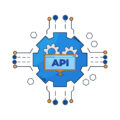In the digital age, APIs (Application Programming Interfaces) have become the building blocks of software development. They are the glue that holds different software applications together, enabling them to communicate and share data. APIs have revolutionized the way we build and interact with software, making it possible to create more complex, feature-rich applications.
However, designing APIs is not just about creating endpoints for software interaction. It’s about creating a seamless experience for both the developers who will use the API and the consumers who will interact with the applications built on it. This requires a robust API management strategy and the right API management tools.
The Importance of API Management
API management is a critical aspect of API design. It involves the creation, deployment, and continuous improvement of APIs in a secure and scalable environment. A robust API management platform provides developers with the tools they need to design, deploy, and manage APIs effectively.
API management is not just about technical aspects. It also involves understanding the needs of API consumers and ensuring that the API meets those needs. This consumer-centric approach to API design can lead to more successful, widely adopted APIs.
Choosing the Right API Management Tools
When it comes to API management, having the right tools is crucial. The best API management tools provide a range of features that make it easier to design, deploy, and manage APIs. These may include features for API design, testing, security, analytics, and more.
However, not all API management tools are created equal. It’s important to choose a tool that fits your specific needs and provides a robust, scalable solution for API management.
Building a Robust API
A robust API is one that is reliable, secure, and easy to use. It should provide a seamless experience for developers and consumers alike. This requires careful design and ongoing management.
Building a robust API starts with understanding the needs of your users. This includes both the developers who will use the API and the consumers who will interact with the applications built on it. By understanding these needs, you can design an API that provides a great experience for all users.
Ensuring API Security
Security is a paramount concern when designing APIs. A robust API management platform should provide features that help ensure the security of your APIs. This includes features like authentication, authorization, rate limiting, and threat detection.
API security is not a one-time task, but an ongoing process. Regular audits, updates, and monitoring are essential to ensure that your API remains secure as new threats emerge.
API Analytics and Insights
Understanding how your API is being used is crucial for its success. API analytics provide insights into API usage patterns, performance, and errors. These insights can help you identify issues, understand user behavior, and make informed decisions about API improvements.
A good API management tool should provide robust analytics features, allowing you to track API usage, monitor performance, and identify issues before they become problems.
Conclusion
Designing APIs for success involves more than just creating endpoints. It requires a robust API management strategy, the right tools, and a focus on user needs. By following these tips, you can design APIs that are developer-friendly and consumer-ready, paving the way for successful software solutions.





